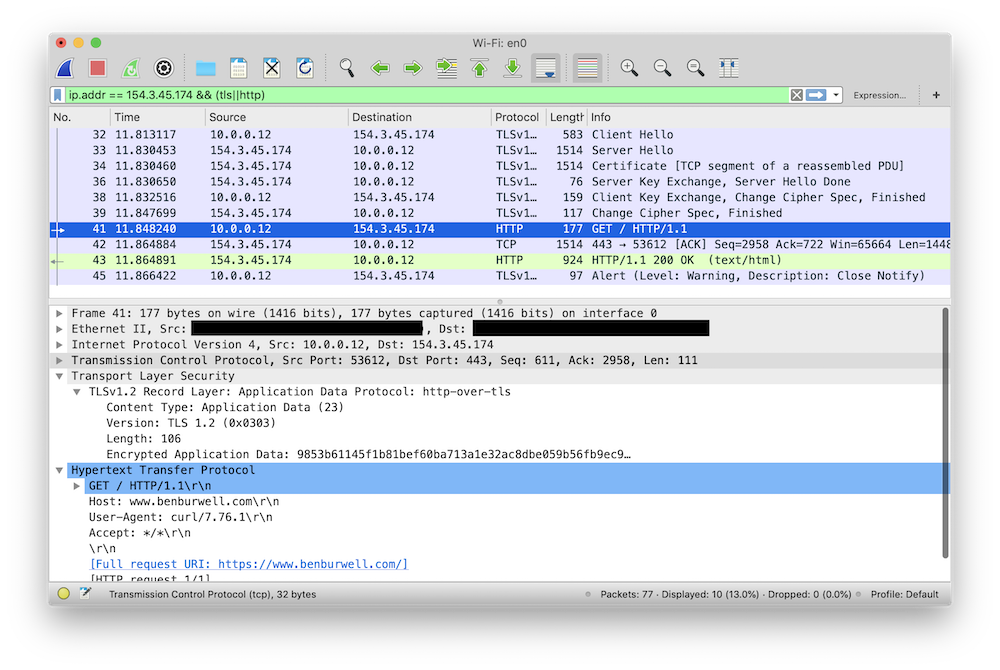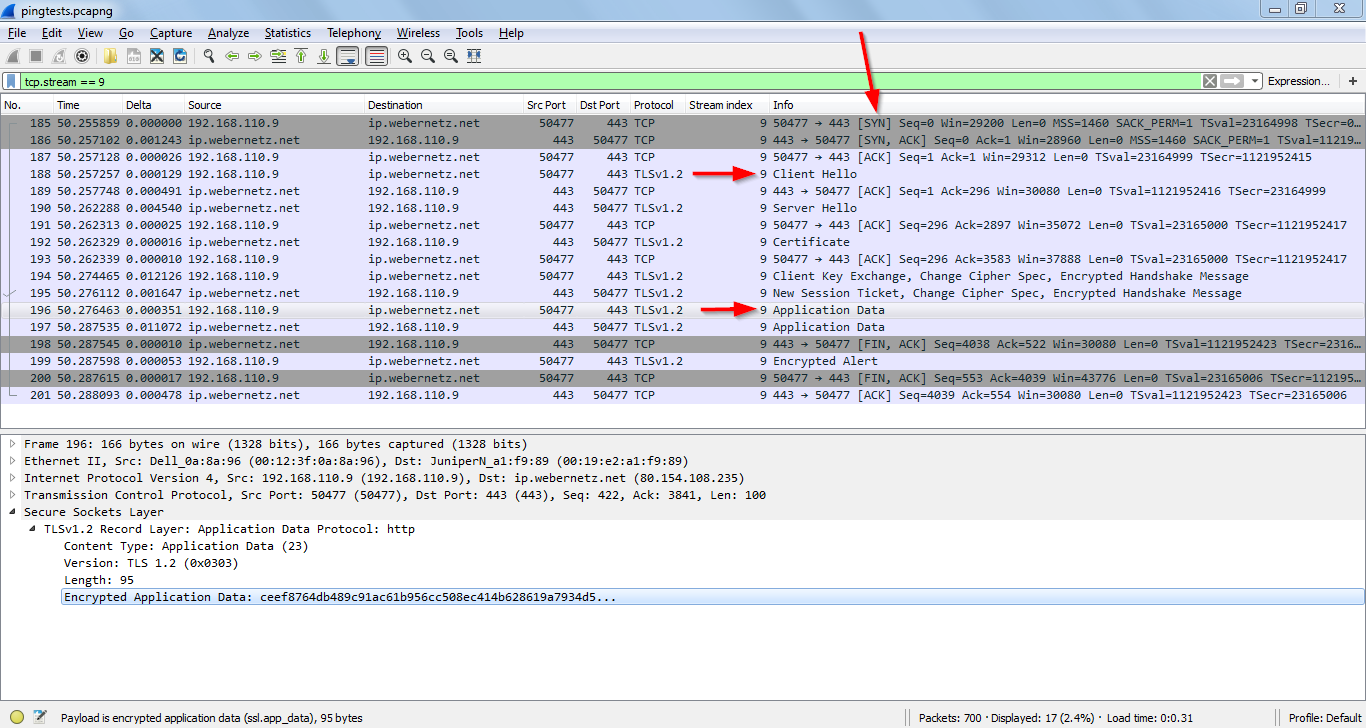
This command lists the frame number, the Random field and the Server Name for Client Hello messages: tshark -Y " and =1" -Tfields -e frame.number -e -e _server_name -r ssl-decryption-pluralsight.pcapng This is matched against the Random field in the Client Hello message. To cross-reference the keys from the key log file, note that the Key Log File uses the following format for TLS 1.2 secrets: CLIENT_RANDOM While the key log file is non-empty, some keys are still missing. Here are links to the sslkey.log, ssldebug.log, and pcapng:Īny comment or feedback is much appreciated. I'm not great at interpreting the SSL debug file but it seems like most every frame logs:ĭecrypt_ssl3_record: no decoder available. The Cipher Suite being used is TLS ECDHE RSA WITH AES 128 GCM SHA256 but that didn't seem to be an issue in the tutorials. I verified that the paths are not misspelled and the Chrome is writing into the sslkey.log file.


Closed all instances of Chrome and Wireshark.

Changed the settings of wireshark in Perferences>Protocols>SSL> (Pre)-Master-Secret log filename to the location of sslkey.log.Created a system environment variable "SSLKEYLOGFILE" to a text file called sslkey.log.I am trying to view TLS/SSL traffic coming from my Chrome and have been following the basic tutorials fromĪnd (Troubleshooting with Wireshark: Analysing and Decrypting TLS Traffic with Wireshark).


 0 kommentar(er)
0 kommentar(er)
